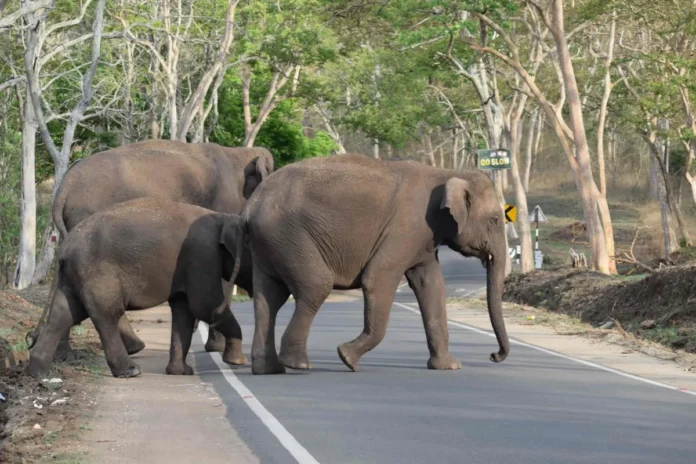The Tripura Forest Department has announced a series of measures to address the ongoing man-elephant conflict in the state. The conflict, which has resulted in both human and elephant casualties, has prompted the department to develop innovative solutions to ensure the safety of both parties.
One of the key initiatives is the construction of underpasses for elephants at five strategic locations along National Highway 8. This highway serves as a vital link between Tripura and the rest of India via Assam. The underpasses are designed to provide safe passage for elephants, reducing the likelihood of collisions with vehicles and minimizing the disruption to their natural migration routes.
Forest officials believe that these underpasses will play a crucial role in mitigating the conflict. “The construction of these underpasses is a significant step towards ensuring the safety of both humans and elephants. By providing dedicated pathways for elephants, we hope to reduce the frequency of encounters and the resulting conflicts,” said a senior forest official.
In addition to the underpasses, the Forest Department is also setting up anti-depredation camps in areas prone to elephant incursions. These camps will be equipped with resources and personnel to respond quickly to incidents of elephant depredation. The aim is to provide immediate assistance to affected communities and implement measures to prevent further incidents.
The department is also focusing on community awareness and education programs. By educating local communities about the behavior and needs of elephants, officials hope to foster a better understanding and coexistence between humans and elephants. “Raising awareness is key to mitigating conflict. We are working closely with communities to develop strategies that protect both human livelihoods and elephant habitats,” the official added.
The man-elephant conflict in Tripura has been a longstanding issue, exacerbated by habitat loss and fragmentation. As human settlements expand and encroach on elephant territories, the frequency of encounters has increased. The measures announced by the Forest Department are part of a broader strategy to address the root causes of the conflict and promote harmonious coexistence.
The initiatives have been welcomed by conservationists and local communities alike. There is hope that with continued efforts and collaboration, the man-elephant conflict in Tripura can be significantly reduced, ensuring the safety and well-being of both humans and elephants.


